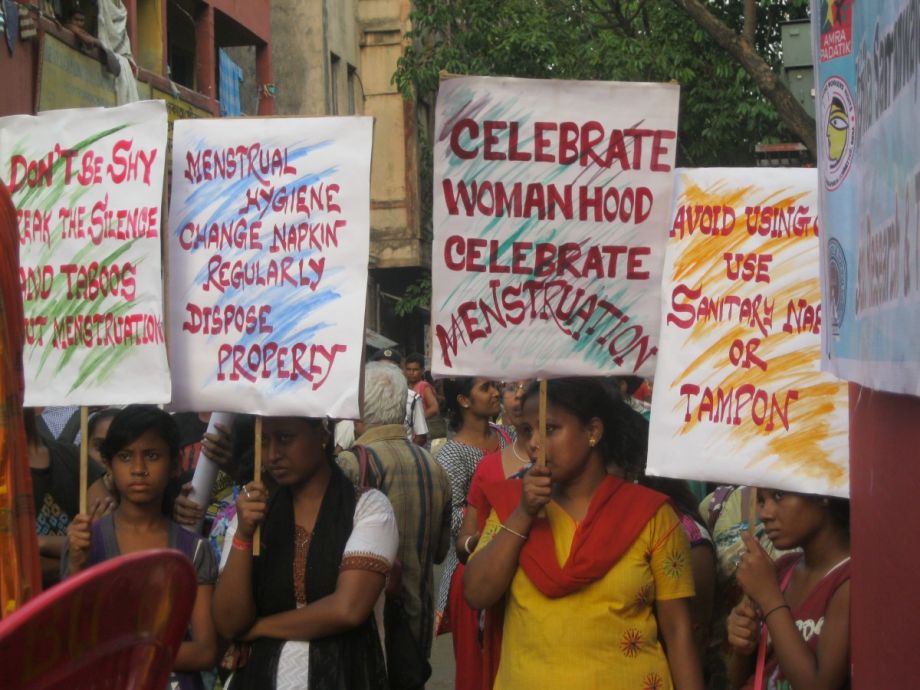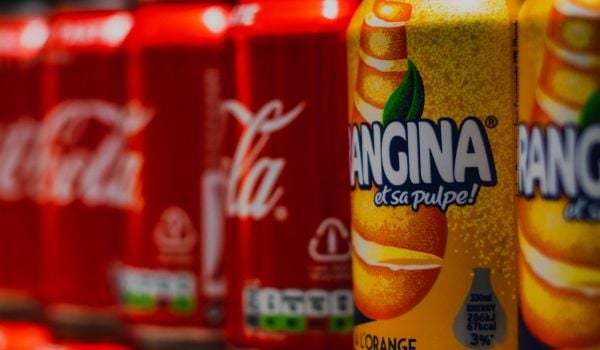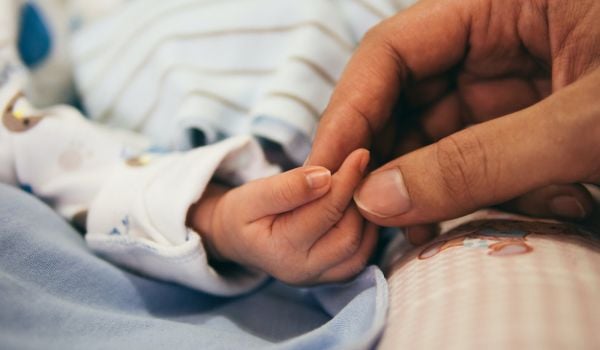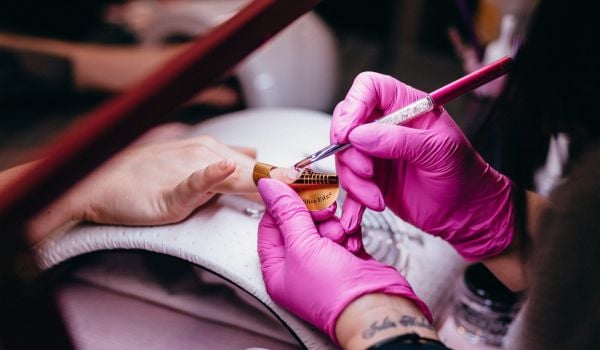In recent years, a mini-industry has emerged to help girls in the developing world access menstrual products. The work is doing a tremendous amount of good, including creating jobs, bolstering school, and offering much-needed health education to women and girls.
“We had women who were 40 years old who were asking me why they menstruate and if it’s normal,” says Elizabeth Scharpf, founder of Sustainable Health Enterprises (SHE), an organization that provides pads made of banana fiber and works to eliminate that knowledge gap.
I’ll admit that I do find some of the promotional tactics for these products odd. A company called Thinx uses a photo of three models’ toned derrieres to promote panties with a built-in absorbent liner designed to make menstruation less inconvenient. Marketing claims have also been doubted by researchers. Thinx touts that donating pads to girls in sub-Saharan Africa will close a persistent gender gap in education: “100 million girls in the developing world fall behind in school just because of their periods, forcing many of them to eventually drop out.”
But after a study last decade of several hundred adolescent schoolgirls in Nepal who had limited access to hygiene products, economists Emily Oster and Rebecca Thornton wrote, “We estimate girls miss about 0.4 days of school in a 180-day school year due to their period.”
Providing menstrual products to all girls won’t prevent their dropping out, in other words. It’ll prevent just one of every two girls from missing a single day of school per year. Myriad factors besides menstruation might induce a girl to leave school. In their 2014 book Poor Economics, researchers Esther Duflo and Abhijit Banerjee argue that whole families, not just children themselves, make schooling decisions based on tuition costs, anticipated future income and parents’ choosing to direct scarce resources to their most academically talented offspring.
Nevertheless, that says nothing about the actual value of menstrual products. Thinx does helpfully call to improve personal convenience and end the shame associated with periods. (The company did not return requests for an interview.)
Oster and Thornton agree that people want access to adequate hygiene. “Despite this lack of impact on education, the menstrual cup was very popular with the girls in the study,” the researchers concluded about a second component of their study, which involved passing out menstrual products to teen girls.
Scharpf dismisses Oster and Thornton’s study (“It’s not even on the same continent with us”), and attests to the popularity of such products. Along with robust interest from women and girls in Rwanda, where SHE is based, the organization has heard from people from about 25 other countries.
SHE’s work extends beyond the simple provision of pads. Scharpf points to the work of professor Marni Sommer, who researches puberty and global health at Columbia University. In an interview, Sommer said, “I think a lot of people are also trying to broaden the intense focus on pads … . For those of us working on this issue, it’s a holistic approach, it’s having adequate water and sanitation facilities, it’s disposal facilities in school environments, as well as ensuring that girls understand what’s happening to them.”
SHE has adopted that holism. “They really wanted information about their bodies, which I hadn’t anticipated,” Scharpf says about the women and girls she’s met in sub-Saharan Africa. She says SHE offers health education and outreach to teachers along with its core product.
The benefits extend to economics too. Sewing the pads made of banana fibers (an agricultural byproduct often otherwise discarded) offers an extra source of income to local farmers — and does it in an environmentally friendly way. This new industry (and other business models, based on simple cloth pads) can increase quality of life through job opportunities ranging from machine technicians to the street hawkers who can sell the products informally.
In the end, pads don’t have to save 100 million girls in the developing world from an abrupt end to schooling. To be worth having, they only need to do the same thing that they do for women and girls in America: Eliminate inconvenience and shame and enhance well-being. As Scharpf puts it, “This is about dignity.”
The “Health Horizons: Innovation and the Informal Economy” column is made possible with the support of the Rockefeller Foundation.

M. Sophia Newman is a freelance writer and an editor with a substantial background in global health and health research. She wrote Next City's Health Horizons column from 2015 to 2016 and has reported from Bangladesh, India, Nepal, Kenya, Ghana, South Africa, and the United States on a wide range of topics. See more at msophianewman.com.
Follow M. Sophia .(JavaScript must be enabled to view this email address)

















